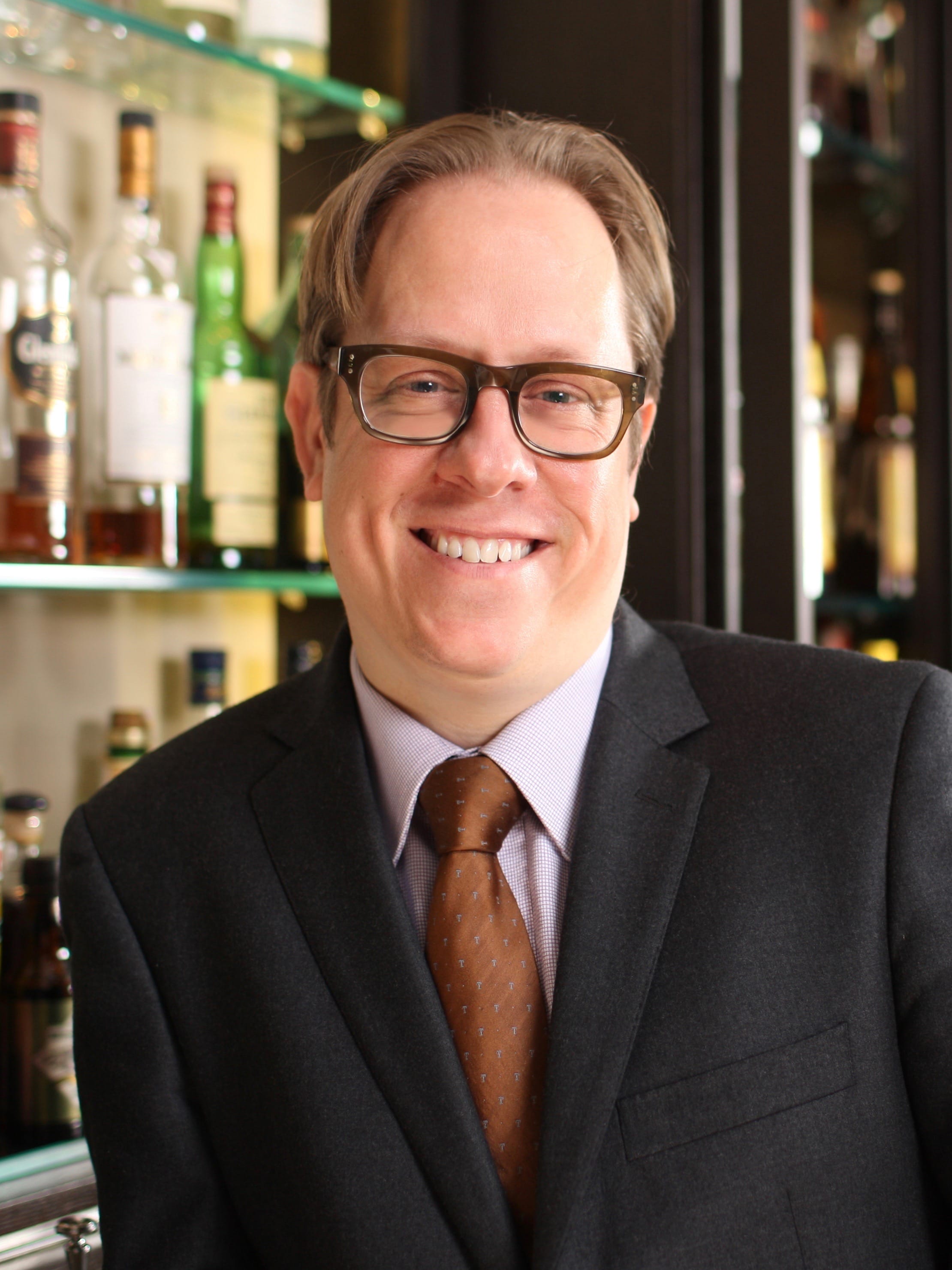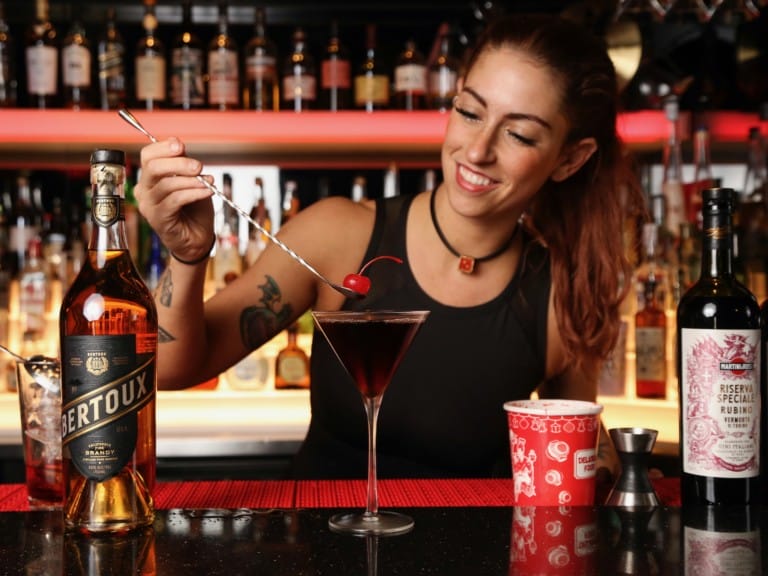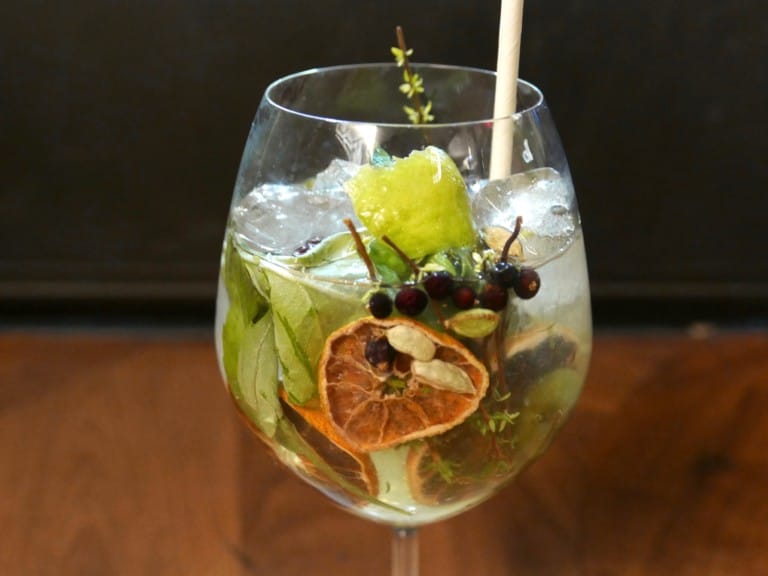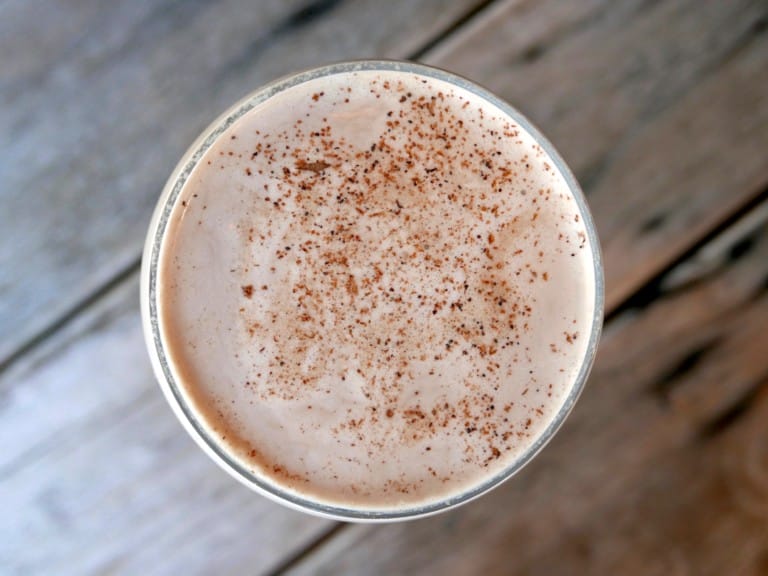Native New Yorker Eben Freeman has spent more than two decades behind bars. In that time, he’s worked at some of the more progressive establishments in the city, including WD-50 and Tailor. Since 2010, he’s worked as the Director of Bar Operations & Innovation for Altamarea Group, which has three restaurants in Manhattan: Marea, Ai Fiori and Osteria Morini. Freeman was in Los Angeles on November 8 to present PAMA liqueur to local bartenders at Harvard & Stone, and he took time afterwards to discuss his connection to cocktails, spirits and more.
Do you pronounce your name Ee-ben or Eh-ben?
Eh-ben. My parents, not only did they give me a funny name, but they pronounced it funny as well. I tell people, I’ve answered to Ee-ben behind the bar many times. I’ve been Kevin many times. As long as somebody doesn’t call me asshole, I’ll usually respond. I’m not that particular.
Where did you grow up?
I grew up primarily in New York. My mother was Upstate and my father was on the Lower East Side. We actually lived for a year – when my parents divorced – in Northern California, around Felton, and I spent a crazy year in an adobe house in New Mexico around that same time.
When did you know that you’d work as a bartender for a living?
You know, I’m still not convinced that that’s what I’m going to be doing, but I can say when I was in New Mexico, I do remember that there was a door that had one of those locks with the two buttons. It pushed this little pin through the other side. I had this idea that we would create a soda fountain and somehow that would be a dispense system. I guess that would be the earliest indication that I was interested in serving people. When I was in California, we had a babysitter who used to get us high, apparently. I remember us putting a bunch of shit in a blender, and I put a light bulb in a blender one time. So I guess that I was another early indication of what I’d do later in my life.
It really when I was a manager at a Caribbean restaurant in the West Village of New York that the bartender didn’t show one day, and I had to jump behind the bar. I made more money that night than I made in six days as a manager, and I actually got to go out with the waitresses at the end of the night with a hand full of cash. Yeah, that was a turning point. Sex, drugs and rock and roll, all in the same evening.
What was the restaurant?
It was a restaurant that was called Caribe, and there are far too many stories connected to this restaurant to relay, but in the context of our conversation. It was a Caribbean restaurant in the West Village, and there was a guy named Jimmy #2, who was the second guy to work there named Jimmy. He used to make his own ginger beer, his own sorrel and sea moss, and we had Wray & Nephew white rums. This is back in 1990. I was working with hibiscus and Wray & Nephew white rum, which was an early collaboration where the chef was preparing a lot of things for the bar, and that really started a lot of my thinking on assumptions that the kitchen would be cooperating with the bar.
What would you want to be known for as a bartender or mixologist?
Not what I want to be known for, but what I want to do best – amongst the many skill sets that bartenders have – is being able to take people through the whole experience. I was really interested in fine dining and specialized fine dining like we did at WD-50 because I wanted to be able to do every step of service. I wanted to be able to create something and make an interesting cocktail, I wanted to be able to guide people on what food they were having, based on that bartender’s intuition. I wanted to be able to pair wines and sakes and beers. I wanted to be able to show people that I had more of a command of the food than even the people who were on the floor. I really wanted to do everything connected with the dining experience, and I think taking people through that whole journey and doing the homework to really take them through, from a number of different angles, is really what I do best.
How did you start working with Michael White and has it evolved?
It was a chance meeting, as many times happens in my career, I happened to have worked at Tailor with a chef named Amador Acosta, and he was working at Marea. I went in to dine at the bar and got to meet Chris Cannon, who was famous for beverage and overseeing the beverage for the group. Josh Ozersky, who I knew from when he was at Grub Street, and now works at Time Magazine, was there. He introduced me to him. He knew he was working on a new project in a hotel, and Chris knew that there would be more of a beverage cocktail angle because of the physical layout of the space, and he gave me an interview. I got to interview with the chef and also with the CEO Ahmass Fakahany and knew that I wanted to do more than just create a list or work behind a bar, that I really wanted to work with a group, and knew what I wanted and was able to communicate it well. Even though they were just looking for somebody to come on to that project, sold them the idea of me overseeing the whole project, and I have to give them credit for being people who were in the right position to think that was something the group would need, and hopefully fulfilled all I’ve promised them.
What do you look for when you’re hiring somebody to work behind one of your bars, and does it vary from venue to venue?
Without question. We have, of our three places in the city, as we were talking about, Ai Fiori, really, I’m most proud of the cocktail program there, and I want someone who’s going to support the staff I have there, and is a little more interested in doing cocktails and selling cocktails and taking the time to do all the different steps of service there, know food, know wine, what’s really the best expression of that thing I was talking about earlier.
At Marea, you’re dealing with a high volume and you’re dealing with a difficult customer, and you have to have a thick skin to be able to put up with that, and you can’t be somebody who’s a cocktail purist, because you’re just going to have people pissing you off all night long. So there’s a different skill set involved there.
Then at Osteria Morini, it’s a lot more rustic and it’s in SoHo. You’re dealing with a lot more tourists there and a language barrier there, and it’s a lot more brutal, fast service, so you’ve got to be good at that.
With each venue, I hope to see different strengths. When I train somebody, I can get a sense this would be the better place for you. When we were opening up Morini, I started saying, stop, there are a couple people that are really good, but I know how busy this place is going to be, and they’re going to be crying mid-service because this is not going to make them happy and this is not where they’re going to excel. I asked them if they would come back and train again and do our next project because I knew what we were doing next.
As far as the criteria for cocktails, is that different at the three venues? And in what way?
You know, you have to move faster at Marea. At Marea, you have to be able to multi-task and still snap into that mode when necessary. At Ai Fiori, you have to be really focused and able to take the heat of tickets and still jiggering properly, and also demanding that you have a real understanding of a fantastic wine program, and the food there, more so than at Marea. At Marea, there’s fantastic food, but there usually isn’t the time or the need to describe food. At Ai Fiori, there’s time there. There’s no reason that you shouldn’t be able to get all your steps of service right. It definitely takes a much different temperament at each place.
But as far as a cocktail you would serve, does that vary between the three locations?
Yes, I mean, Morini, my head bartender there, Richard Ervin, has really made somewhat of a simplified menu, working with three or four ingredients. There isn’t as much glassware. You definitely need to be able to move a lot faster there. At Marea, you just don’t have the audience that’s going to appreciate as involved cocktails, whereas Ai Fiori, there’s the time, and because the audience is so much better. In speaking to people such as yourself, trying to direct traffic, there’s far more likelihood that someone’s interested in a beverage. Someone who is aware of my reputation and wants to go for that reason will be sitting at that bar.
Is there anybody who you’ve never worked with before that you’d most want to work with behind the bar?
INTERVIEW CONTINUED ON THE NEXT PAGE









Leave a Comment